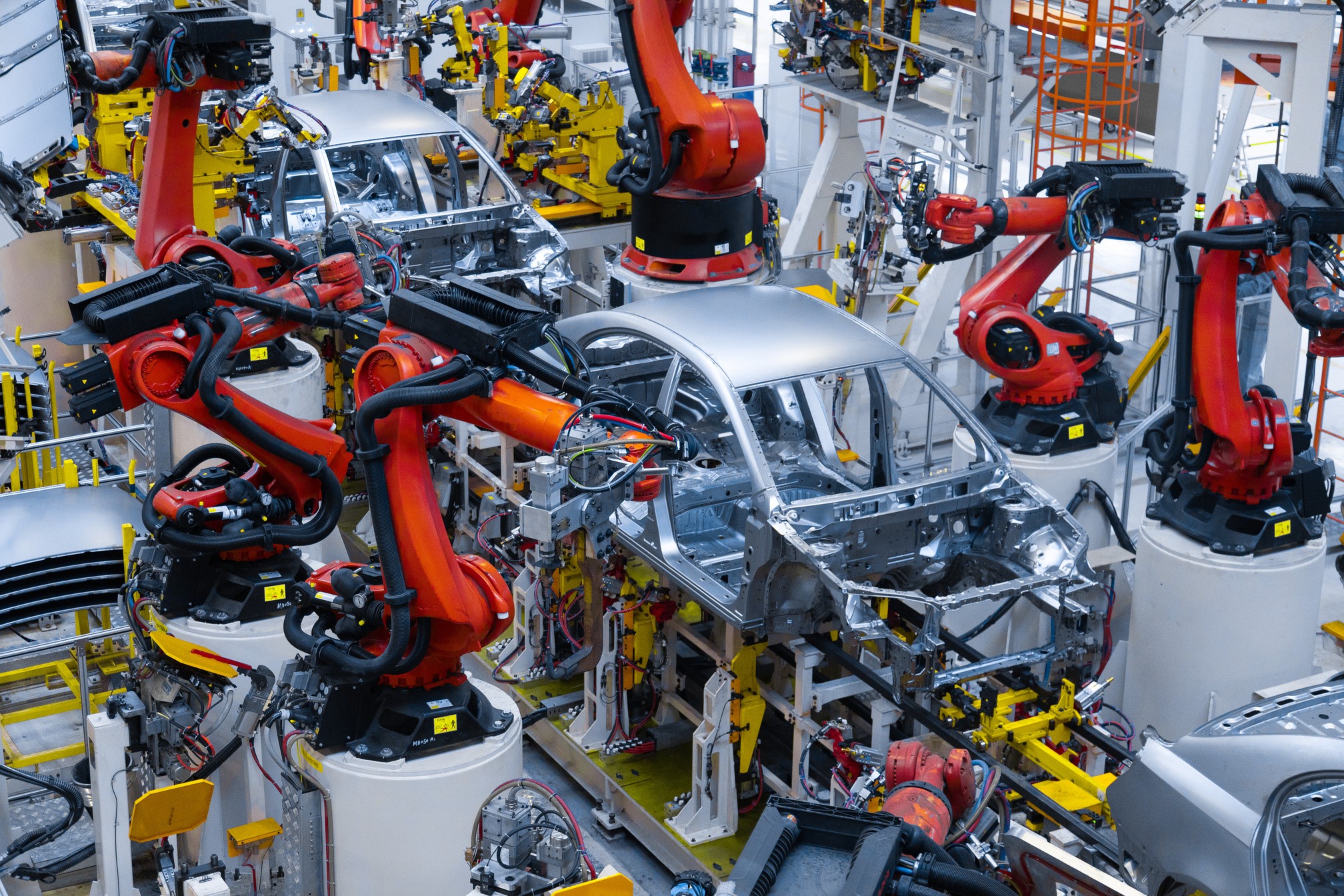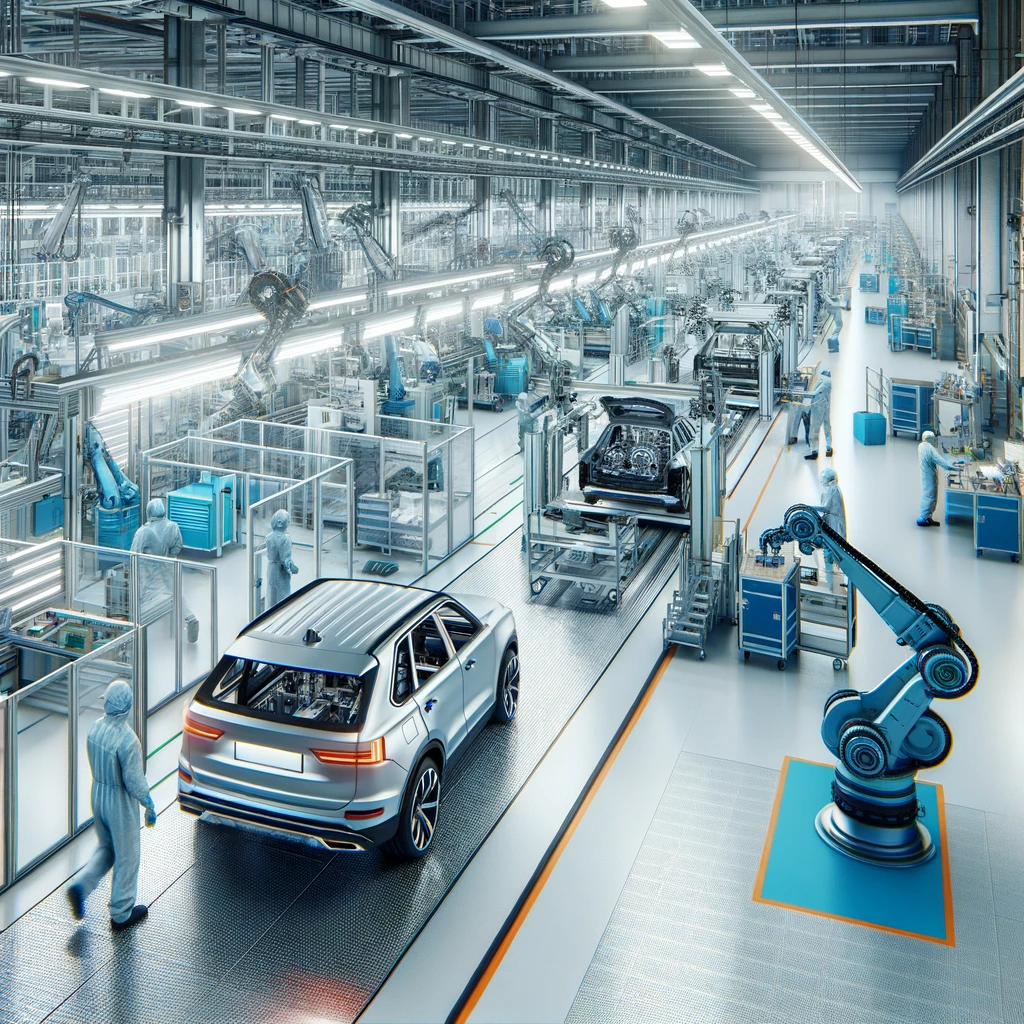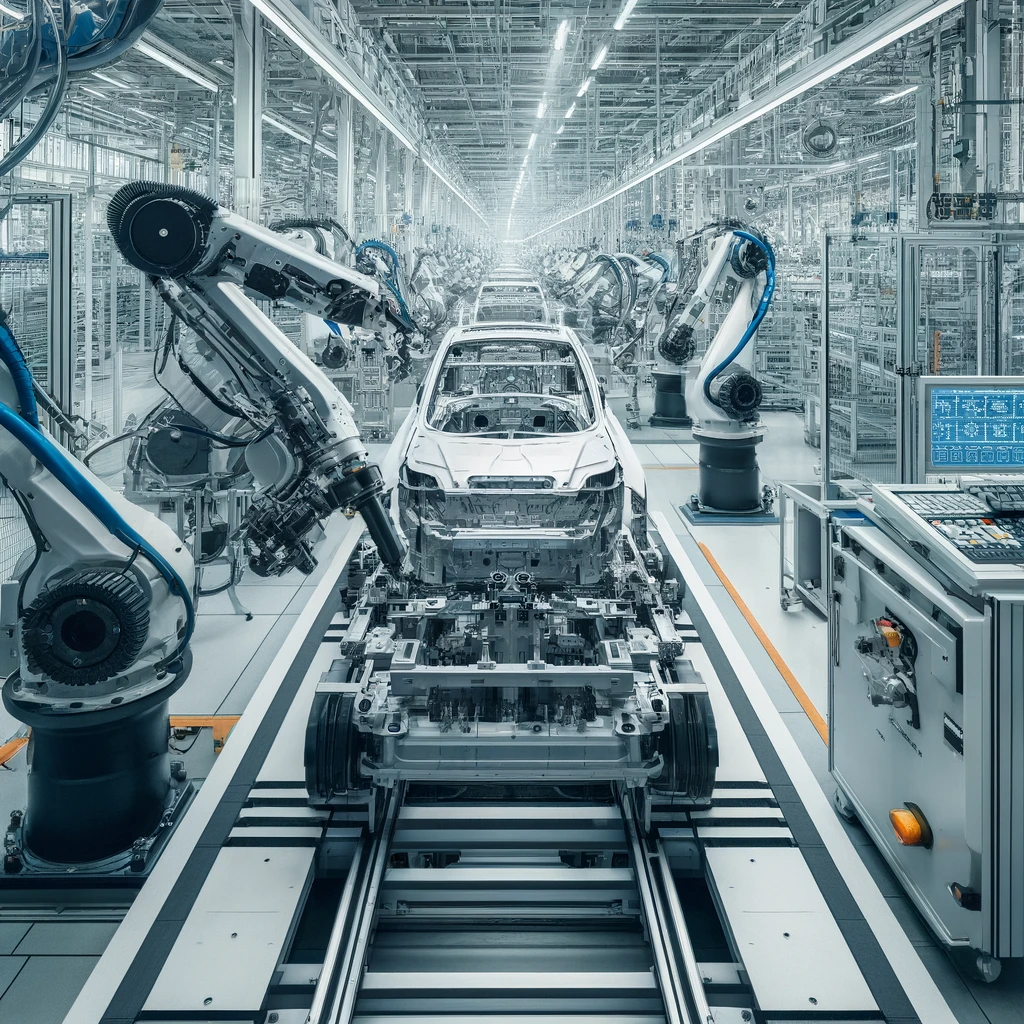
The automotive industry encompasses the design, manufacture, and sale of motor vehicles and their components. It is one of the most technologically advanced and rapidly evolving sectors, including passenger cars, trucks, buses, motorcycles, and specialty vehicles. Key players include various levels of suppliers known as TIER 1, TIER 2, and TIER 3. TIER 1 suppliers provide direct components or systems to Original Equipment Manufacturers (OEMs) like Ford, Toyota, or Volkswagen. TIER 2 and TIER 3 suppliers provide parts and raw materials to higher-level suppliers. The automotive industry is characterized by high standards of quality, innovation, and stringent safety regulations. Process automation, advanced technologies, and a continuous drive for sustainability are central to this sector.
| Supplier Level | Description |
|---|---|
| TIER 1 | TIER 1 suppliers deliver directly to Original Equipment Manufacturers (OEMs). They produce large and complex components or systems, such as powertrains, braking systems, or body modules. TIER 1 suppliers work closely with vehicle manufacturers on the development and integration of new technologies. |
| TIER 2 | TIER 2 suppliers provide components and subassemblies to TIER 1 companies. They produce smaller parts or subassemblies that are incorporated into larger systems by TIER 1 suppliers. Examples include electronic components, mechanical subassemblies, or specialized materials. |
| TIER 3 | TIER 3 suppliers deliver raw materials or basic components to TIER 2 suppliers. These can be producers of raw materials such as steel, plastic, or chemicals, which are then processed and used to manufacture automotive parts by higher-level suppliers. |
| OEM | OEM (Original Equipment Manufacturer) refers to companies that produce finished vehicles or significant parts thereof. Examples include Ford, Toyota, Volkswagen, and other global automotive brands. OEMs work closely with TIER 1 suppliers to integrate and develop complete systems for vehicles. |
Importance of Safety in the Automotive Industry
Safety plays a crucial role in the automotive industry, impacting every stage of machine and production line design. High safety standards aim to protect both operators and end-users. The automotive sector is a source of numerous harmonized industry standards that set global benchmarks for safety and quality. These standards emphasize minimizing risks associated with machine operation, enhancing device reliability, and ensuring compliance with international standards. Adhering to these norms is essential for reliable and safe production processes. Continuous technological advancements and the pursuit of excellence drive the automotive industry to set standards influencing other sectors, promoting safe and reliable solutions worldwide.
Key Stages in Machine and Production Line Manufacturing
In the automotive industry and other industrial sectors, crucial stages like FAT, SAT, and SOP play significant roles in ensuring quality, safety, and efficiency in production processes:
- FAT (Factory Acceptance Test): Conducted at the supplier’s factory before delivery and installation to verify that equipment meets technical requirements.
- SAT (Site Acceptance Test): Performed on-site after equipment delivery and installation to ensure it operates correctly in the client’s actual production environment.
- SOP (Start of Production): Marks the beginning of operational production, where machines and production lines start producing products according to planned parameters.
These stages are essential for minimizing downtime, improving final product quality, and ensuring smooth and uninterrupted production processes. Detailed testing and verification at each stage are crucial for operational success and maximizing the investment in equipment.
Innovative Engineering Solutions for the Automotive Industry
Engineering Shield Sp. z o.o. offers advanced engineering solutions for the automotive sector. Our services support car manufacturers, automotive parts producers, and transportation systems, ensuring top standards of quality, innovation, and safety.
Automotive Industry: Our Services
Production Line and Process Design
We offer comprehensive design services for production lines and processes tailored to the automotive industry. Our projects are customized to meet specific client needs, delivering innovative and efficient solutions. We collaborate with clients at every stage of the design process, from concept through to final product, utilizing the latest technologies and engineering tools.

Production Process Automation
We implement advanced production automation systems that enhance efficiency and reduce costs. Our automation solutions are designed for seamless integration with existing production lines, allowing for smooth and trouble-free implementation. Automation boosts productivity, eliminates human errors, and improves product quality.
Certification and Audit Support
We assist our clients in obtaining essential certifications and approvals necessary for bringing products to market. Our support includes preparing documentation, conducting tests, and working with relevant certification bodies. With our expertise and knowledge, we ensure that our clients’ products meet all legal and industry requirements.
Process Analysis and Optimization
We conduct detailed audits of production processes to identify areas for optimization. We propose and implement solutions that enhance operational efficiency, reduce costs, and improve overall process performance.
Specific Requirements of the Automotive Industry
Compliance with Standards and Regulations
Our projects adhere to rigorous standards and regulations related to production systems and processes, such as:
- ISO 9001 – Quality Management Systems.
- ISO 14001 – Environmental Management Systems.
- ISO 45001 – Occupational Health and Safety Management Systems.
Adhering to these standards is crucial for ensuring the quality and safety of production processes and meeting legal and industry requirements.
Safe and Durable Materials
When designing production lines for the automotive industry, we ensure that the materials used are safe, durable, and compliant with industry standards. We utilize high-quality metal alloys, plastics, and composites that meet requirements for strength, corrosion resistance, and high temperatures.
Designing with Safety in Mind
Safety is a priority in the automotive industry. We pay special attention to:
- Safe Structures: We design and test structures for durability and operational safety.
- FMEA Analysis: We conduct Failure Modes and Effects Analysis (FMEA) to identify and eliminate potential faults during the design phase.
- Computer Simulations: We use advanced computer simulations to analyze the behavior of materials and components under various operational conditions.
Why Choose Engineering Shield?
- Innovation: We invest in the latest technologies and continually develop our expertise to offer innovative and effective solutions, aligned with industry trends and high-quality standards.
- Experience: Our team of experienced engineers and specialists has a track record of successful projects for leading automotive firms, providing tailored solutions for complex needs.
- Flexibility: We adapt our services to meet individual client needs, ensuring solutions that meet all requirements through close client collaboration.
- High-Quality Standards: We emphasize quality in all our services, with processes certified to the highest industry standards, ensuring reliability and safety in every project.

High Quality Standards
We place great emphasis on the quality of our services. Our processes are certified according to the highest industry standards, ensuring the reliability and safety of our solutions. Thanks to our rigorous control procedures, we guarantee that each project is executed according to the highest quality standards.
Contact Us
For advanced engineering solutions for your automotive business, contact us. Our team is ready to answer your questions and provide solutions tailored to your needs.
